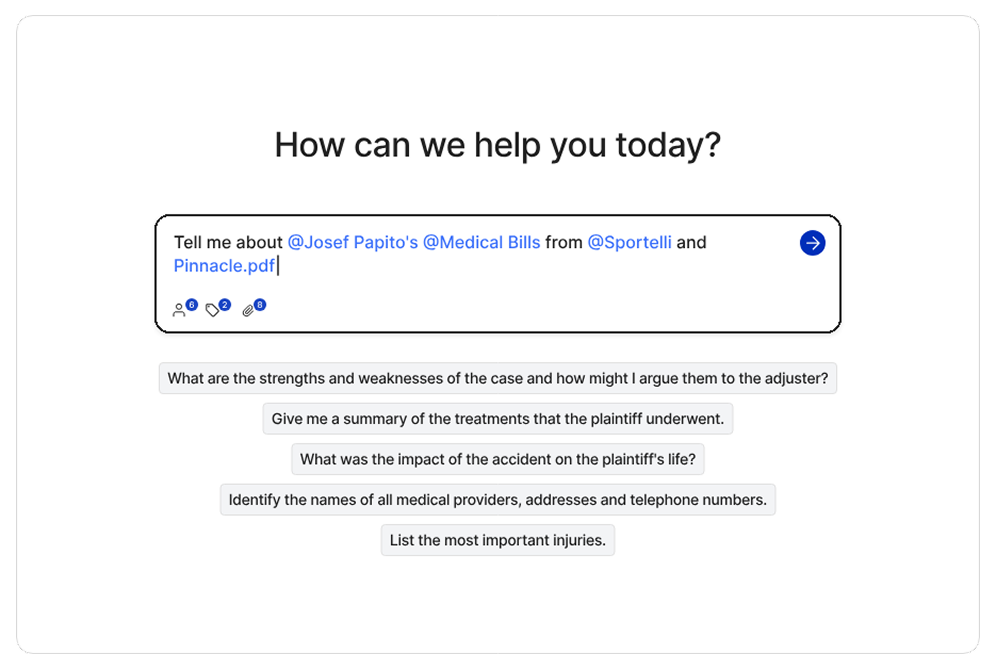Back to Series
We examined thousands of prompts from Case Companion™, EvenUp's legal AI assistant.
The data reveals clear trends that align with common pain points and time-consuming case work.
Top Prompt Categories
Medical Treatment and Chronology: Medical records are overwhelming in volume and complexity.
What firms prompt for: Full provider lists, treatment timelines, symptom logs, and detailed injury narratives.
Injury Assessment: How injuries are presented can make or break a case.
What firms prompt for: List of major injuries, context for diagnoses, and severity assessments.
Case Assessment & Strategy: Strong cases frame the facts to highlight strengths and defend against case weaknesses.
What firms prompt for: Strengths and weaknesses list, potential adjuster arguments, rebuttal strategies, and comprehensive case summaries.
Simplify Medical Record Analysis for More Efficient Reviews
In July 2025, 69% of custom Case Companion™ prompts relate to medical treatment analysis and injury assessment.
Some examples of common medical treatment and injury assessment prompts include:
List all medical providers involved in treatment. For each, include the full name, address, and phone number.
Create a summary of all treatment in no more than 5 bullet points per provider.
Can you summarize the Pain Management Dates of Service from City View Pain Center?
Please give a summary of who Dr. Heart is and an overview of his treatment with John.
For each date of service, indicate the provider/facility name and list if any future care recommendations were provided, including further office visits, injections, and surgical procedures. Indicate if the patient completed this care appropriately, or if this care has not yet been completed.
Conversational Prompting Refines Insights
Case Companion offers a conversational approach to legal AI, unlike AI Drafts, which focuses on generating documents from a single prompt. You can interact with the platform in real time by asking follow-up questions, refining outputs, and drilling down into specific aspects of a case.
This back-and-forth dialogue allows you and your team to explore case details more deeply and produce highly tailored outputs based on what you’re specifically looking for.
Don’t be shy about engaging with Case Companion and asking follow-up questions. Over two-thirds (67%) of EvenUp firms and nearly 30% of all prompts engage in multiple message threads with Case Companion™. Additional messages include follow-ups that clarify, refine, or expand on the initial prompt.
Tell Case Companion™ What You Want and Watch It Deliver
Include what you want back: If you’re looking for bulleted summaries, ask for bulleted summaries. If you want a persuasive narrative, make that clear. If you want the response in table form, specify that.
Use legal context language: Words like “causation,” “treatment gaps,” “comparative fault,” or “value detractors” will guide the system toward more useful phrasing for case strategy.
Clarify phase of case: Let the AI know if you’re working on a pre-lit demand, preparing for deposition, or drafting a trial brief. Context = clarity.



